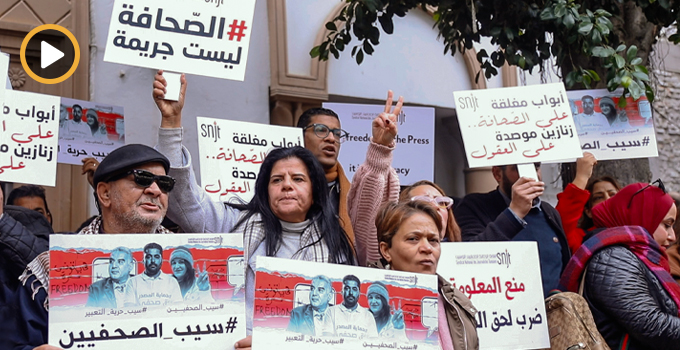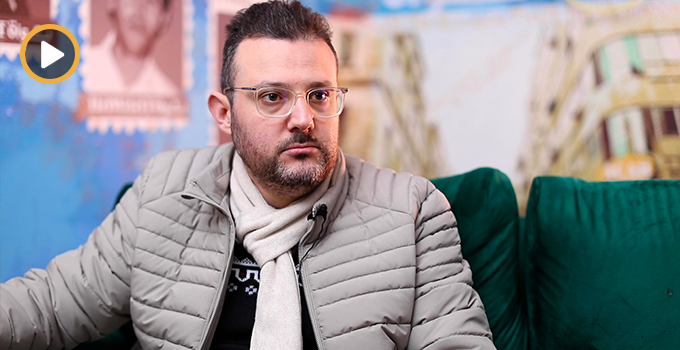
The U.S.’s Internet freedom movement has been engaged in plenty of soul-searching since Haystack, a much-hyped anti-censorship tool built by a San Francisco group, was exposed earlier this week to be insecure, easily trackable and likely doing more harm than good for the Irani dissidents who were testing it.
Now a prominent blogger and a director of a Internet free speech group has taken the opportunity to send a larger message to the U.S.: Get your government–and your government-tied Silicon Valley companies–out of our fight against online censorship.
Sami ben Gharbia, the advocacy director for free speech NGO Global Voices has penned a long and persuasive essay on the U.S. government’s counterproductive meddling in grassroots movements to liberalize the Internet in countries like Iran, China, Thailand, and elsewhere. By funneling money and rhetoric at the global anti-censorship movement, he argues that the Obama administration has tainted local projects with suspicions of ties to the U.S. agenda, hypocritically focused its efforts on U.S. interests, and even endangered local bloggers.
Here’s a snippet:
Many people outside of the U.S, not only in the Arab world, have a strong feeling that the Internet Freedom mantra emitting from Washington DC is just a cover for strategic geopolitical agendas. This Internet freedom policy won’t be applied in a vacuum. At first, it will build upon broader U.S and Western foreign policy and their strategic goals and interests; in other words, it will continue projecting the same Western priorities. Having the U.S and other Western government as major actors in the Internet freedom field could present a real threat to activists who accept their support and funding. A hyper-politicization of the digital activism movement and an appropriation of its “success” to achieve geopolitical goals or please the Washington bubble are now considered by many as the “kiss of death”. In a worst-case scenario, Western funding, hyper-politicization and support could also lead to a brutal alteration of the existing digital activism field and the emergence of a “parallel digital activism” in total disregard to the local Arab context.
Ben Gharbia collects quotes from bloggers around the world who believe that the State Department’s new verve for fighting online censorship–made official in Hillary Clinton’s speech on the subject last January–is biased towards U.S. government interests rather than an objective concern for free speech. While criticizing China and Iran, for instance, Washington gives a free pass to other countries where it has less interest in subverting the government, including Saudi Arabia, Thailand, and Bahrain.
He also points out cases where U.S. government involvement has made domestic dissidents vulnerable to accusations of consorting with a foreign government, like a Tunisian professor and blogger who was arrested in May and questioned about her ties to the U.S. Embassy. And Ben Gharbia accuses U.S. NGOs of carelessly collecting dissident names without putting the appropriate safeguards on that information. “An increasingly important database of activists names, contact information and affiliations is being build, aggregated, mapped and sometimes shared between tens of governmental and non-governmental bodies in a clear and careless violation of privacy and confidentiality,” he writes. “One can imagine the risk that would involve this kind of data aggregation for the on-the-ground activists if one day it falls into the hands of any of the eager authoritarian regimes.”
Ben Gharbia has more mixed feelings towards Silicon Valley. He points to an “invisible revolving door” between the executives of companies like Google, Yahoo!, and Twitter and the federal government. Jared Cohen, who State Department official who just joined Google to create Google Ideas, was also responsible for the government’s intervention to prevent Twitter from going ahead with planned downtime during an Iranian protest. That, he says, taints even Google’s attempts to foster online freedom with the whiff of government backing.
But he also wants American companies to better enable privacy and anti-censorship tools online. Google’s Blogger platform, he argues, should have an encrypted SSL setting as default for all blogs to prevent government surveillance. “Google, instead of using the same mantra of Internet Freedom and instead of cocooning itself in the ideological echo-chamber of the U.S “21st-century statecraft”, should roll out more tools or improve the old ones to help strengthen the digital activism field,” he says.
You can read Ben Gharbia’s long but worthwhile essay here.





iThere are no comments
Add yours